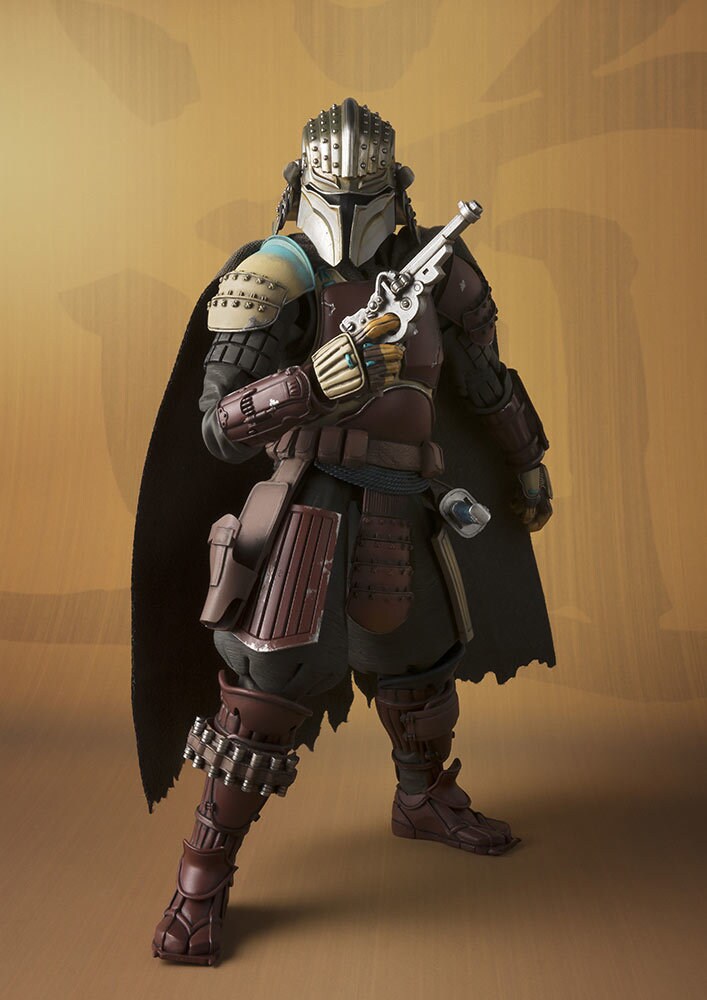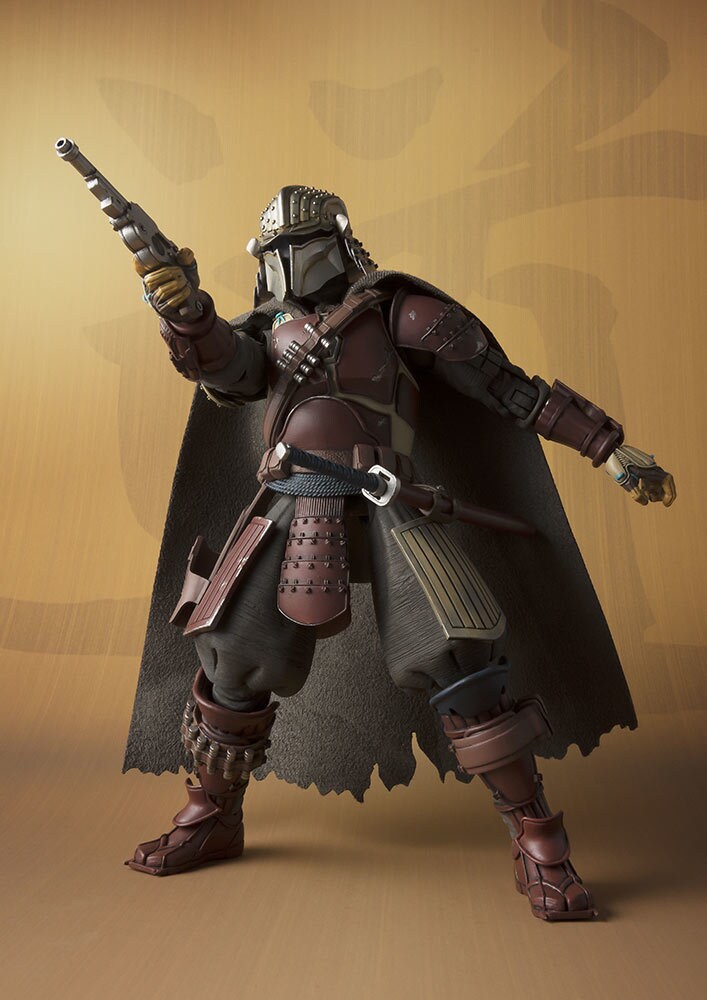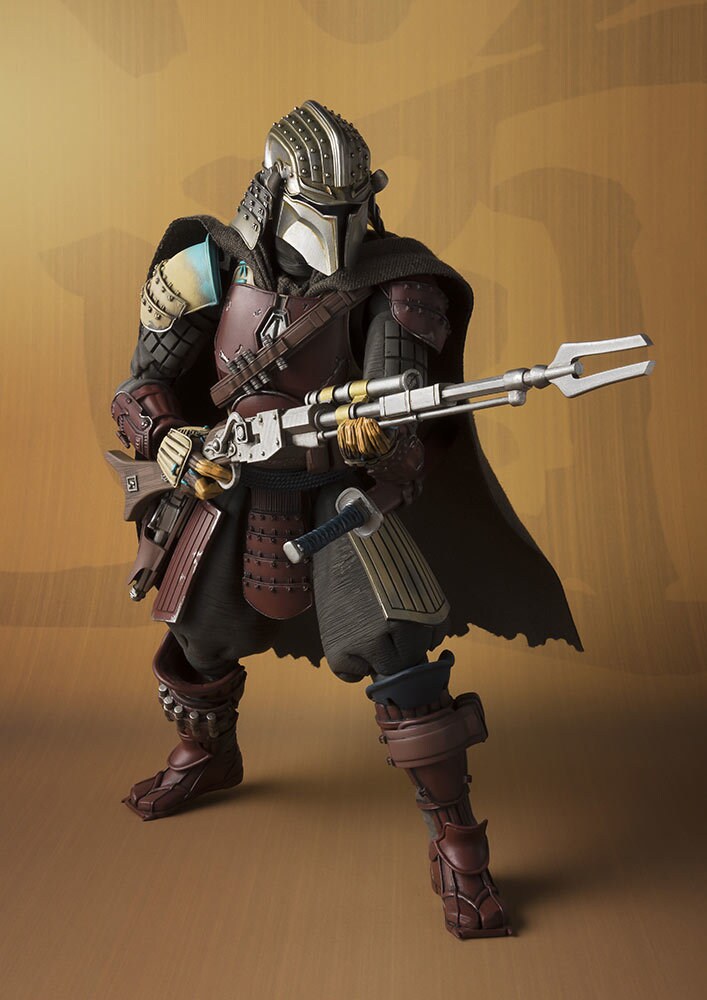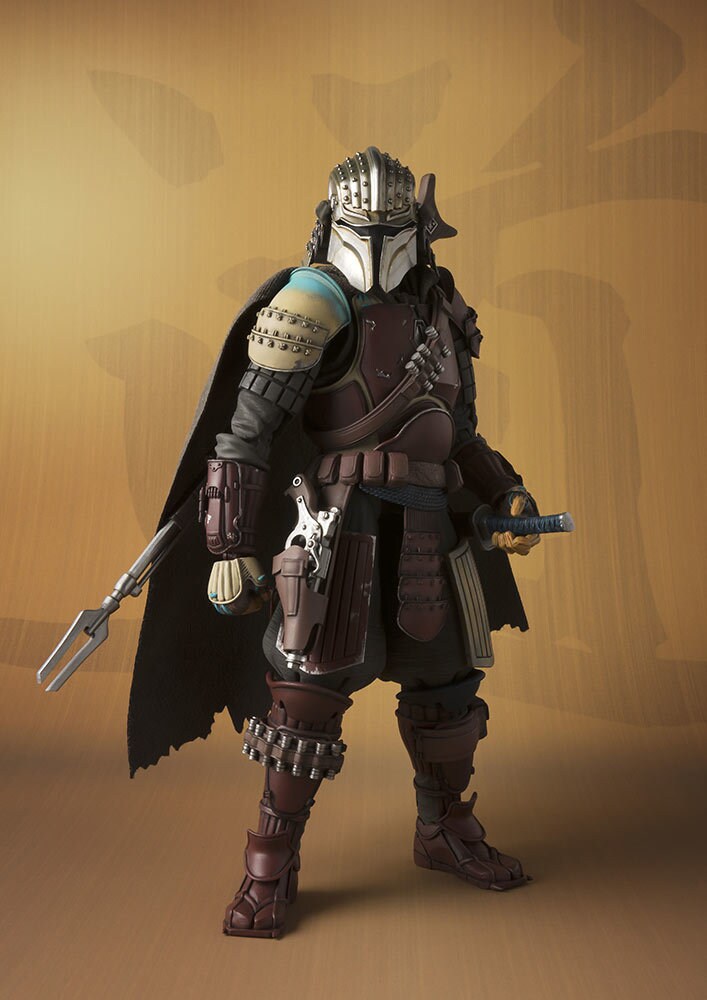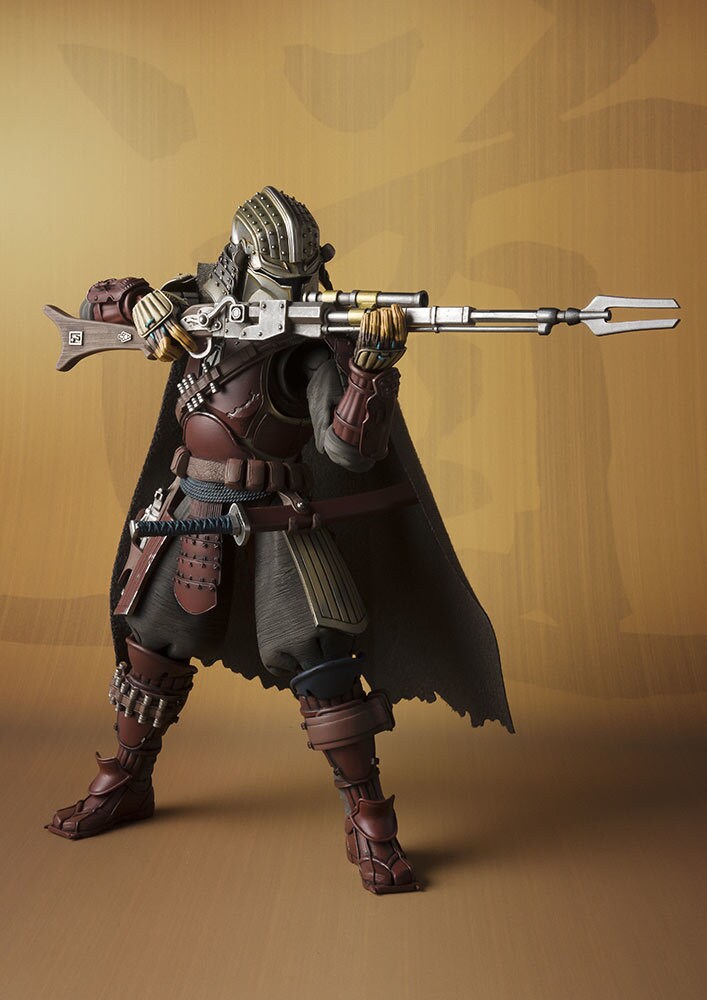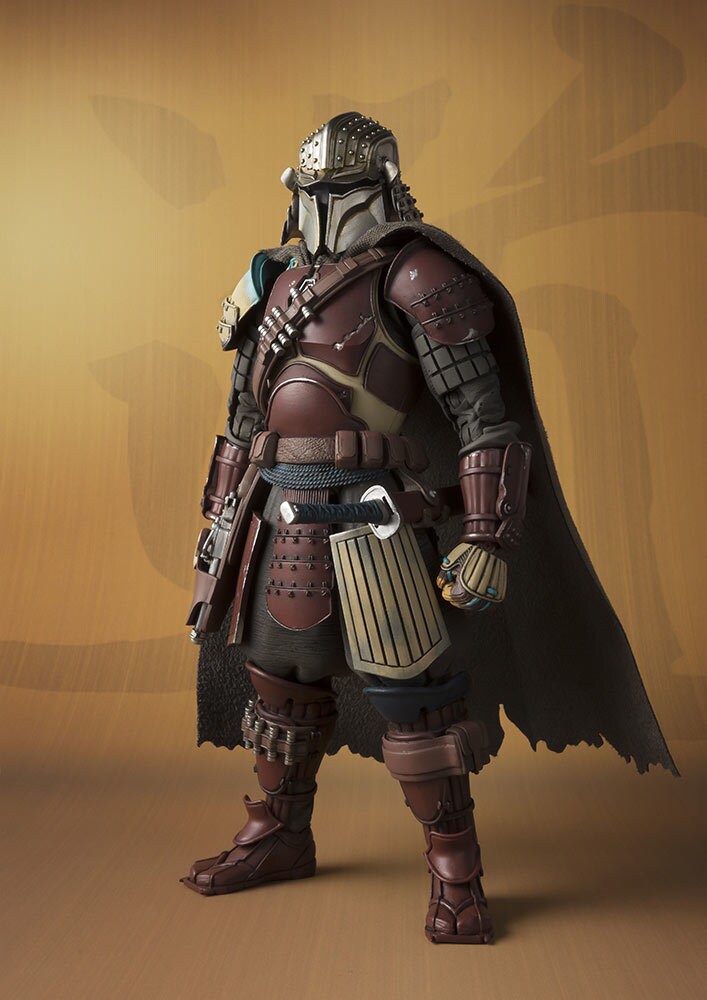See what inspired this unique addition to the fan-favorite Meisho Movie Realization action figure line -- and what collectors can expect next.
Since its debut in November 2019, The Mandalorian has stolen our hearts…and our shelf space. From various iterations of the Child (er, Grogu) to the gleaming, iconic T-shaped visor of Din Djarin himself, collectors have been clamoring for all things Mando.
Combine the explosive zeitgeist that is Star Wars with the craftsmanship of Bandai and you end up with the stunning Meisho Movie Realization action figure line, which transforms characters into warriors from feudal-era Japan. While we’ve seen the likes of Darth Vader, C-3PO, and Kylo Ren in the acclaimed collectible series, the Disney+ breakout show joins the ranks with the latest Ronin Mandalorian figure. Complete with rifle, blaster, and (of course) katana sword accessories, this impressive 6.7-inch collector’s figure features weathering and a first-ever cloth cape -- perfect for a mud-caked brawl with a mudhorn.
StarWars.com had the chance to chat with two of the masterminds behind this unique collectible: product developer of Bandai Spirits Collector’s Division, Julian Oreska, and sculptor/artist of the Meisho Movie Realization series, Takayuki Takeya.
StarWars.com: While the Meisho Movie Realization Ronin Mandalorian isn't the first Star Wars-inspired figure in the collection, it is the first based on a TV character, and one that's had significantly more screen time than many of the other characters -- how did this impact your approach to this particular project?
Julian Oreska: When we first discussed adding the Mandalorian to the Meisho series, we knew from the outset that he would be upgrading his armor and, in a way, evolving his look throughout the course of the show. While we started our Meisho interpretation with the first armor he’s seen wearing, the brown armor with a beskar helmet, we knew we would want to explore creating [the development of his look] as the show progresses. I think the unique thing about the Meisho series Mandalorian figure is that this character will be one of the few to have multiple armor interpretations in this line. That way, you can have a display in your collection showing the evolution of his armor.
StarWars.com: A cross-genre character depiction (especially a Star Wars character!) walks a fine line between recognizable costume elements and new, unique interpretations -- what were some of the important elements from Mando's original design you felt were important to maintain? Which ones did you feel you could play with?
Julian Oreska: We looked at photos of the armor as we discussed how best to interpret it in the Meisho style; and at that point in time, we had also seen the first and second episodes of the series, so we wanted to make certain the figure could [emulate the Mandalorian and] mount his rifle on his back, for example. We also focused on the forearm gauntlets, as he is seen using them multiple times in the first and second episodes. Lastly, we made sure to have the helmet stand out, as that is certainly what I think really identifies a Mandalorian and makes them unique, even amongst the varied Star Wars characters and creatures.
StarWars.com: As with most Star Wars projects, The Mandalorian has managed to keep some pretty big surprises close to the chest -- what was it like partnering with Lucasfilm on such a top-secret production?
Julian Oreska: It was very exciting and surreal. When we first saw images of the armor, we didn’t yet know the context of the show, so we were not sure how he would move or what he would do that might be different from Mandalorians like Jango or Boba or those seen in The Clone Wars. After watching the series and seeing the wonderful tone of the show and some of the great surprises -- specifically the Child and how the Mandalorian’s armor would evolve -- we contacted Lucasfilm immediately about how we could incorporate these additions into our Meisho line. We also saw, right away, references in tone and design to Samurai films, and discussed with Lucasfilm how those themes in the show would work well with our Meisho figures. In fact, one of our next Meisho figures -- which is still in production -- will include the Child. We feel fans of both Star Wars and Samurai movies and culture will be very pleased with how he has been interpreted.
StarWars.com: The Ronin Mandalorian joins two other Ronin-inspired Mandalorian figures who came before, Jango and Boba Fett -- what inspiration do you draw from to ensure the aesthetics remain consistent across the collection, while also offering something new and exciting to collectors?
Takayuki Takeya: In the Japanese Warring States Period, Sengokujidai, there was a highly independent fighting group known as the Saikashu, who wore a very distinctly shaped helmet called kabuto. In the Star Wars universe, I felt the Mandalorians were a similar fighting group, so from the start, with Ronin Boba Fett, I thought it would work well to make the Mandalorian characters’ helmets in the style of the Saikashu. For the differences between Boba Fett, Jango Fett, and Din Djarin, I looked to reference from the Saikashu helmets, as well as incorporating the size and shape differences of the actual on-screen helmets to differentiate their designs.
StarWars.com: The Mandalorian has introduced us to many memorable characters over the past two seasons -- what's one character you'd love to see get the Bandai Meisho Movie Realization treatment?
Takayuki Takeya: I feel that IG-11 is a very attractive character, and right now we are actually working on sculpting him. Other than IG-11 though, I personally really like Kuiil and the female frog alien from Chapters 10 and 11, but they would be hard to make with a Samurai armor design. Actually, speaking of recent additions to The Mandalorian, as well as characters we have not made yet in the Meisho series, I would like to make R2-D2 soon!
The Ronin Mandalorian is available for pre-order now.


